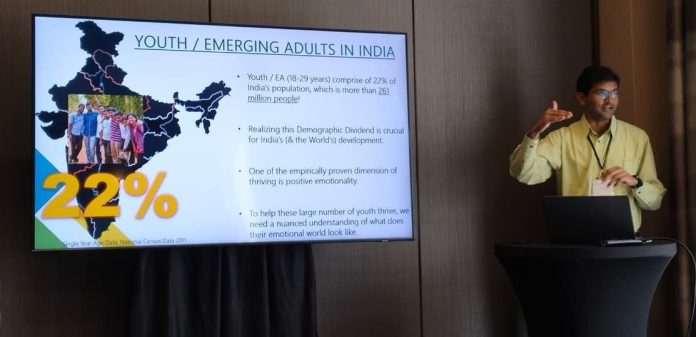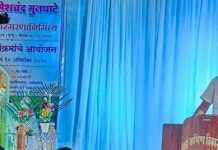
Gadchiroli June 22 (District Correspondent) As many as 53 percent of Indian youth have “malnourished personalities.” This startling statistic has emerged from a study conducted by Amrut Bang, Project Director of NIRMAN.
India is often referred to as a young country, with around 260 million individuals in the 18–29 age group. This demographic advantage is expected to bring a demographic dividend to the nation. However, on the flip side, it has been found that 53 percent of Indian youth have “malnourished personalities.”
Bang presented three research papers at the Emerging Adulthood Conference held in Charleston, USA recently. One of the papers, which focused on the current status of the multidimensional development of Indian youth, detailed the findings based on a study of the personalities of 4,283 young people between 2021 and 2024.
The concept of “Emerging Adulthood” includes individuals aged 18 to 29 and focuses on studying various issues faced by youth in this age group. The term was first proposed by psychologist Jeffrey Arnett of Clark University in the USA, who was also present at the conference, along with 300 researchers from around the world working on youth-related topics.
Bang stated, In the NIRMAN initiative, we have identified seven domains for youth well-being, referred to as the ‘Youth Flourishing’ framework. This research was based on that model. The findings highlight the urgent need for efforts toward holistic personality development of youth.”
He further added, “While 35 percent of children in India suffer from malnutrition, the personality malnourishment among youth stands at a concerning 53 percent. This issue also needs to be taken seriously.”
In addition to this, Bang presented two more papers titled “The Emotional World of Indian Youth” in which the emotions Indian youth frequently experience and express were studied. While “Questions in the Minds of Indian Youths is based on 6,100 questions raised by youth, the most prominent concern was found to be: “Who am I, and what is the purpose of my life?”
India’s National Education Policy aims for the holistic development of young people. To assess this, the NIRMAN initiative developed a ‘Flourishing Framework’ based on seven dimensions- physical health, mental health, character development, relationships, professional development, life skills, and social contribution. Through a set of indicators and questions, youth were scored across these dimensions. The study found that 53 percent of youth scored “poor” across these dimensions, which is referred to as “personality malnourishment.”






